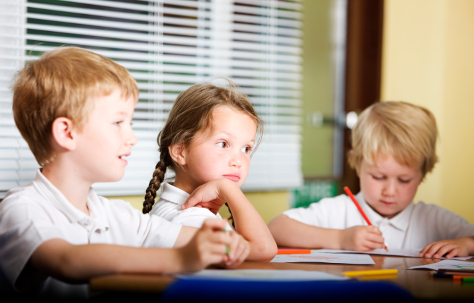Is your little one ready to start school?
What could help your child before taking those big steps to starting school

It only seem minutes ago you were bringing your little one home from the hospital and now you’re getting them school ready, time certainly does fly.
You may have bought the school uniform and new school shoes and their first school bag, but it’s also important to make sure you help them conquer some of those vital skills that will stand them in good stead for starting their school life journey.
Confident to use the toilet on their own
A real important one. Once your little one starts school, they will be expected to be able to go to the toilet themselves, flush the chain and wash their hands. Naturally, it’s worth starting getting them used to doing this on their own before they are due to start schools. Many private nurseries start working with the children to get them used to this early, so if your child is in a private nursery, do ask their key worker how they are getting on with it and reinforce the same at home.
Getting dressed and undressed independently
Like the going to the toilet independently, it’s important your little one can get themselves dressed and undressed independently when they start school as they won’t be able to get the personal help they might get at home. School uniforms for reception children is designed to make it easier for them, so choose t-shirts with minimal buttons, jumpers rather than cardigans and shoes with Velcro instead of laces.
Practice in the holidays leading up to term both getting dressed in the morning and undressed at night.
Learning to read
There is no expectation that a child starting school should be able to read, in fact, if you have used a different phonics scheme to what your school uses, this may make learning a new way more difficult for your little one. By the time your child starts school it’s a great benefit to them if they are used to reading time and have learned to enjoy books but make the most of the bonding time of reading to your child and getting them involved in the pictures and the story rather than panicking they are unable to read themselves. A routine reward chart may help to show them the progress they have made.
Holding a pencil
Developing finer motor skills such as holding a pencil happens at different times for different children, and whereas some take to it young and can write perhaps their name by the time they start school, others will be more comfortable scribbling. The important thing is to encourage them to get used to holding a pencil and let them develop at their own pace.
Most children begin with a fisted grasp when they are toddlers and progress to a ‘five-finger’ pencil grasp before perfecting the ‘3-finger’ ‘tripod’ grasp that’s used in school. But it’s perfectly normal for a 4-year-old pre-schooler to be starting school using the ‘five finger’ pencil grasp.
Never force your child to hold the pencil with 3 fingers and don’t be in a hurry to get your child to colour or draw properly. A little bit of time to practice each will see them learn this skill naturally.
Using cutlery
It’s a good idea to help your little one get used to using a knife and fork before they start school too.
It is not expected that reception age children are able to cut their food and eat without a few peas flying away! School staff will support them at mealtimes but the more used to trying it they are when the start, the less daunting it will be for them. Try practising at home with cutting up playdoh or plasticine sausages. Then at mealtimes encourage your child to cut their food at the beginning of their meal, but offer to help finish the task if they look tired of it. Cutting up bananas (without their skins) is also another idea that will help.
Getting to grips with these skills before your little one starts school will all help them settle that bit easier and be less daunted by the experience of starting school.